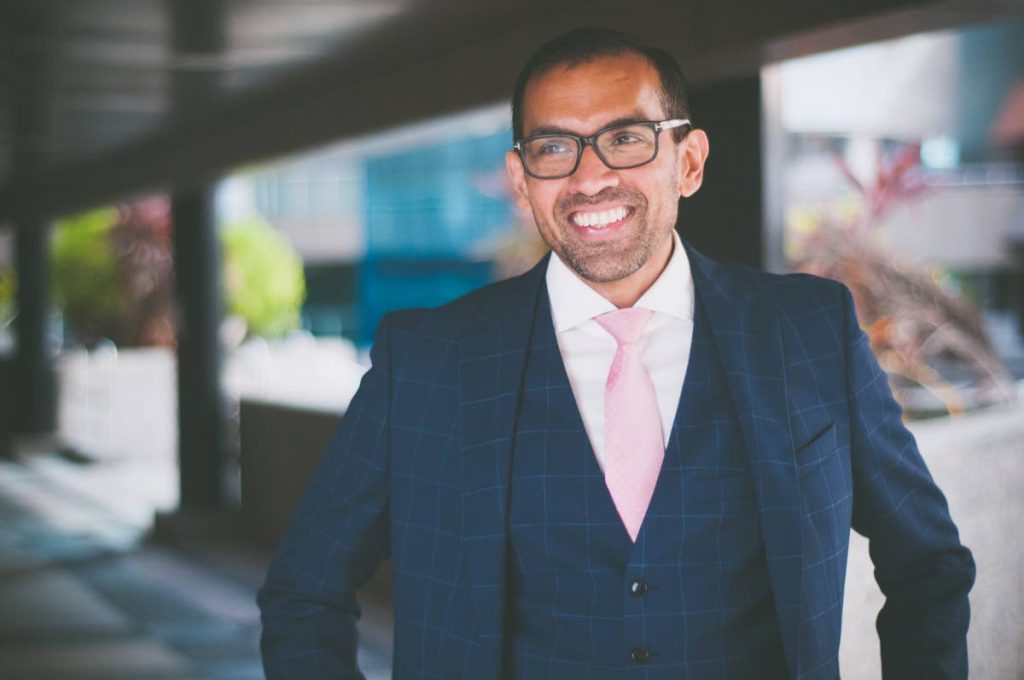The Privy Council has Devant’s number

Dr Emir Crowne
Former government minister Devant Maharaj needed only the number three to succeed at the Privy Council last week. On January 30, at his third and final level of review, three judges of the Privy Council unanimously allowed his appeal in Maharaj v National Energy Corporation of Trinidad and Tobago, [2019] UKPC 5. A decade ago, in July 2009, Maharaj submitted a request under the Freedom of Information Act (FOIA) for the CV and qualifications of the National Energy Corporation’s (NEC’s) CEO. NEC refused the request a month later claiming that the disclosure would “involve the unreasonable disclosure of personal information of any individual” contrary to sub-section 30(1) of the FOIA. (Indeed, seeking refuge in the FOIA exemptions is a common tactic by public authorities in their attempt to legitimise the stifling of access to information).
Between October 2009 and January 2010, the parties exchanged pre-action correspondence with a view to settling the dispute. Those discussions ultimately failed and in late January 2010, Maharaj sought leave to apply for judicial review of the NEC’s refusal. Section 11 of the Judicial Review Act (the “Act”), however, set out a three-month time limit for lodging an application (there’s that three again). The relevant sub-sections of that provision states that:
“(1) An application for judicial review shall be made promptly and in any event within three months from the date when grounds for the application first arose unless the court considers that there is good reason for extending the period within which the application shall be made.
(2) The court may refuse to grant leave to apply for judicial review if it considers that there has been undue delay in making the application, and that the grant of any relief would cause substantial hardship to, or substantially prejudice the rights of any person, or would be detrimental to good administration.
(3) In forming an opinion for the purpose of this section, the court shall have regard to the time when the applicant became aware of the making of the decision, and may have regard to such other matters as it considers relevant.”
The High Court held that no proper explanation had been provided for filing the application for judicial review beyond the three-month time frame set out in the act, and therefore set aside the earlier order granting Maharaj leave to seek judicial review. A majority of the Court of Appeal agreed and upheld the High Court’s decision (Justice Jamadar dissented). In his dissent, Jamadar JA emphasised the “constitutional importance of judicial review as a means of vindicating the rule of law” ([2019] UKPC 5 at para. 24) and the relevance of other factors – like the public interest and policy considerations – in deciding whether to extend the time.
The Privy Council disagreed with both the High Court and Court of Appeal and allowed the appeal. Their Lordships took issue with the seemingly “technical manner” with which the local courts had dealt with the issue, holding that in the absence of any prejudice to the public authority (NEC in this instance) the courts should not deny relief to litigants who have otherwise acted sensibly and reasonably (ibid., para. 29).
In keeping with the numerical theme, their Lordships endorsed a three-step test to decide whether or not to allow an extension of time to seek judicial review of a FOIA refusal. Namely:
(1) Is there a reasonable objective excuse for applying late?
(2) What, if any, is the damage, in terms of hardship or prejudice to third-party rights and detriment to good administration, which would be occasioned if permission were now granted?
(3) In any event, does the public interest require that the application should be permitted to proceed?
The test is not cumulative. It may well be that there is no objective excuse for a late request and the lateness of the request may cause some damage or hardship to third-party rights, but which may still be granted due to the overriding public interest in the matter.
That the public interest should weigh so heavily in the discussion is no surprise. FOIA legislation, in theory, is designed to facilitate the exchange of information, transparency and good governance. Which is perhaps why freedom of information requests are viewed with such hostility in this country. The ability to meaningfully know about certain matters runs contrary to the familiar blend of corruption, secrecy and nepotism that has been normalised in Trinidad and Tobago.
Politics aside, Mr Maharaj’s dogged perseverance has helped shape public law and the public’s right to access information in this country. His actions are worthy of recognition in this instance. In the end, and somewhat conveniently, the requested information was ultimately provided to him in October 2018 once leave to appeal to the Privy Council was granted, nearly nine years after his initial request.


Comments
"The Privy Council has Devant’s number"